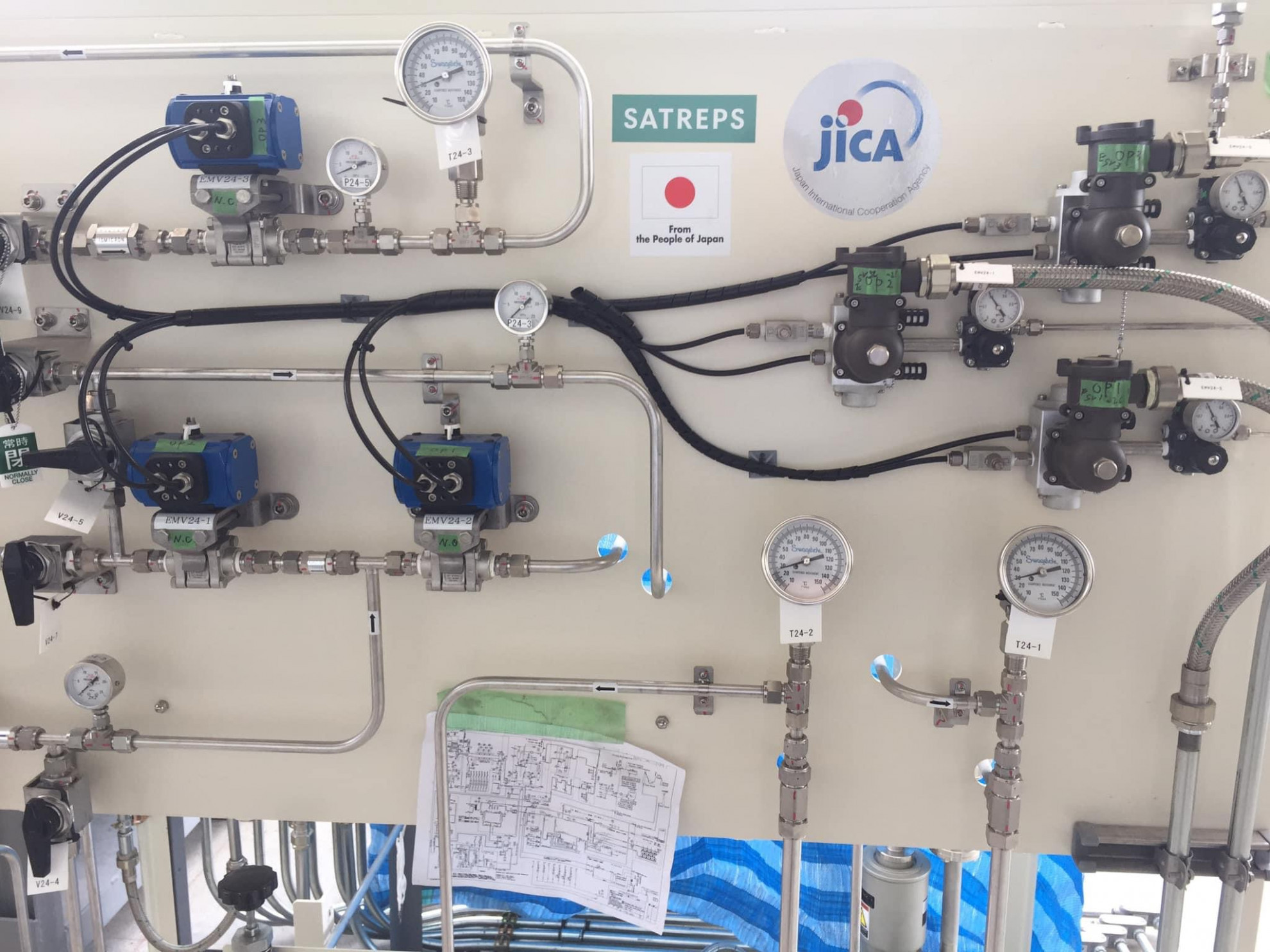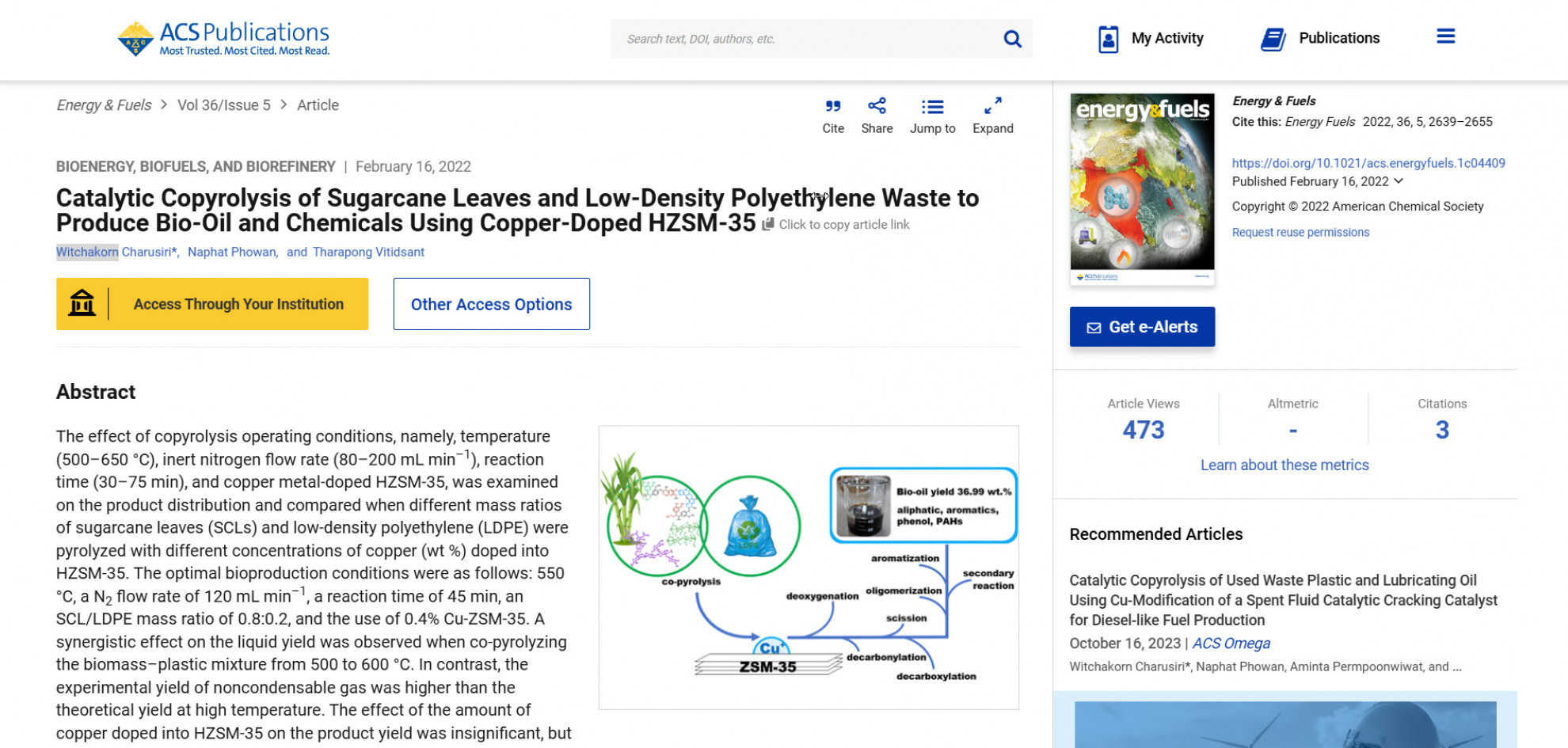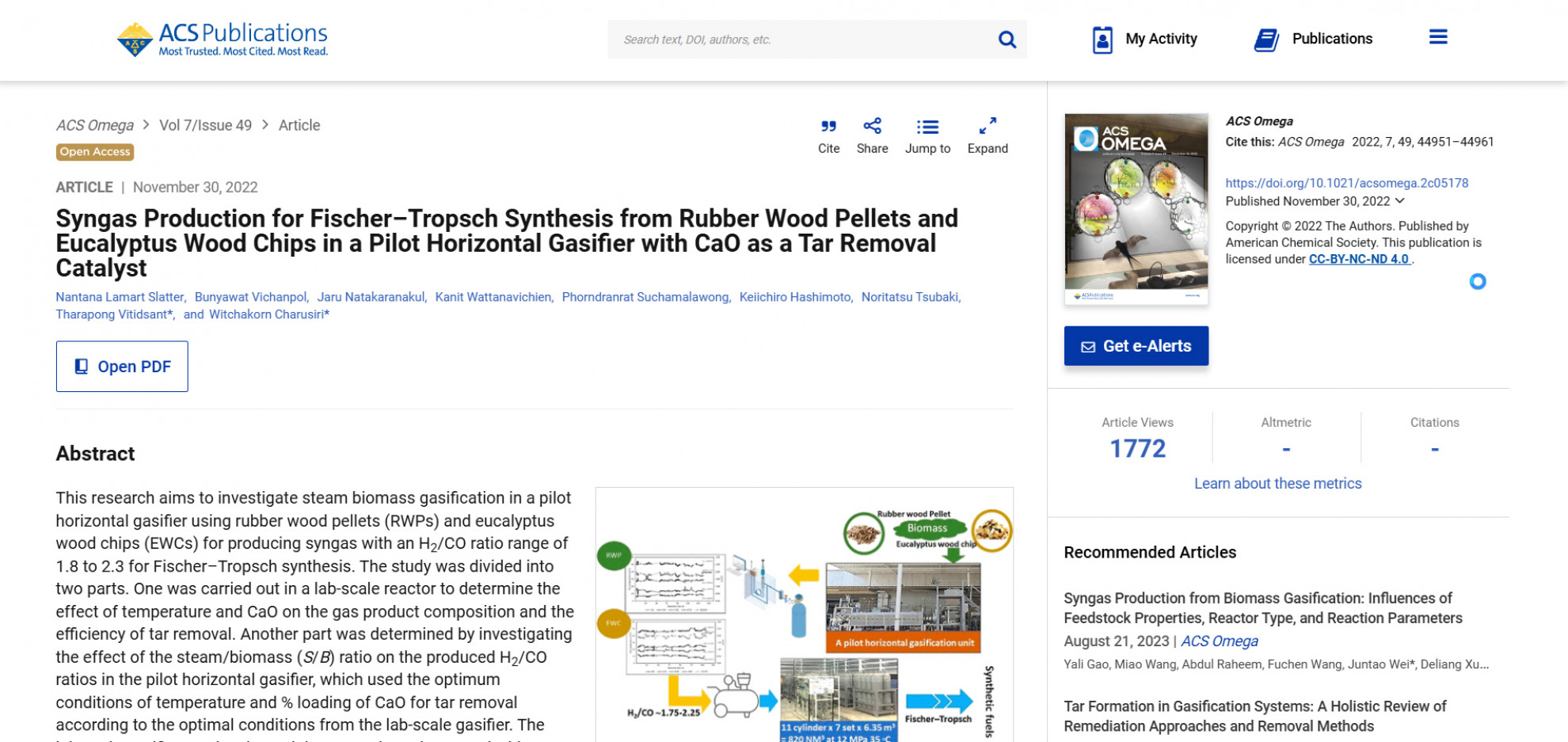





| Target | Indicator | Result |
|---|---|---|

SDG 7
AFFORDABLE AND CLEAN ENERGY
|
||
| 7.1 By 2030, ensure universal access to affordable, reliable and modern energy services | 7.1.1 Proportion of population with access to electricity | provide the technological knowledge transfers to the industrial sector to promote clean energy use in the near future. |
| 7.1.2 Proportion of population with primary reliance on clean fuels and technology |
The biofuels product can be used as replacement fossil fuels that obtained zero carbon dioxide emission provide the technological knowledge transfers to the industrial sector to promote clean energy use in the near future that can be used as replacement fossil fuels that obtained zero carbon dioxide emission. |
|
| 7.2 By 2030, increase substantially the share of renewable energy in the global energy mix | 7.2.1 Renewable energy share in the total final energy consumption | provide the technological knowledge transfers to the industrial sector to promote clean energy use in the near future. |
| 7.3 By 2030, double the global rate of improvement in energy efficiency | 7.3.1 Energy intensity measured in terms of primary energy and GDP | provide the technological knowledge transfers to the industrial sector to promote clean energy use in the near future. |
| 7.a By 2030, enhance international cooperation to facilitate access to clean energy research and technology, including renewable energy, energy efficiency and advanced and cleaner fossil-fuel technology, and promote investment in energy infrastructure and clean energy technology | 7.a.1 International financial flows to developing countries in support of clean energy research and development and renewable energy production, including in hybrid systems |
1.Provide the technological knowledge transfers to the industrial sector to promote clean energy use in the near future. 2. Thailand Japan and other countries in non-OECD which will support by JICA Japan 3.Technologies transfer under co-creating knowledge transfer (Japan Science Technology: JST) support by JICA, Japan |
| 7.b By 2030, expand infrastructure and upgrade technology for supplying modern and sustainable energy services for all in developing countries, in particular least developed countries, small island developing States and landlocked developing countries, in accordance with their respective programmes of support | 7.b.1 Investments in energy efficiency as a proportion of GDP and the amount of foreign direct investment in financial transfer for infrastructure and technology to sustainable development services | provide the technological knowledge transfers to the industrial sector to promote clean energy use in the near future and Technologies transfer under co-creating knowledge transfer (Japan Science Technology: JST) support by JICA, Japan |
In Thailand, a tropical agricultural country, large amounts of agricultural residues, including those from the processing of agricultural products, are wasted. The project aims to create renewable energy resources as alternatives to fossil fuels by developing gasification technologies to obtain gas from such agricultural residues and catalyst technologies to convert the gas to liquid fuel. We will not only develop technologies for the characterization of resources, conversion to gas suitable for catalytic reactions, and catalytic conversion of gas to diesel, gasoline, LPG or methanol but also build a platform for the social implementation of these technologies through the verification of product utilization characteristics as well as human resource development.
This study contributes to solving resource and environmental issues by producing liquid fuel from renewable energy resources as an alternative to fossil fuels. Alternative fuels to fossil fuels and chemical products from abundant biomass resources are produced in Thailand. The obtained biofuels will serve to improve Thailand’s energy self-sufficiency ratio, promote agriculture and rural communities, and conserve the environment of Thailand. In the future, it will also contribute to the development of fuel production from biomass that does not compete with the food supply and prevent global warming through the use of alternative fuels to fossil fuels.
Overall goal: The technologies for alternatives to fossil fuel are utilized to create bases for industrialization.
Project purpose: Production technology for alternatives to fossil fuel using biomass and waste resources (quality of wood, farm outputs, waste systems, etc.) is developed, and the project is proposed for social implementation.
Results: The project started in August 2017. For the past two years, the project's activities have been greatly affected by the COVID-19 pandemic and have faced many restrictions, which have caused progress to be delayed. Now that the project period has been extended by one year, until August 2023, there is a strong determination to accomplish the project's outputs.
On July 7, 2023, the project held the fifth Joint Coordination Committee (JCC) meeting at Chulalongkorn University with committee members, including Japanese researchers, the Thailand International Cooperation Agency (TICA), the Japan Science Technology Agency, etc., which consisted of key drivers of the project in attendance. The JCC is held to monitor progress, discuss problems, and find solutions for the project. The meeting was chaired by Prof. Tharapong Vitidsant, director of the Centre of Fuels and Energyfrom Biomass, Chulalongkorn University, and 26 members were attended.
Prof. Tsubaki, Toyama University, reported that all catalysts, which are catalytic technologies of biogasoline, biodiesel, biomethanol and bio-LPG, have already been prepared for the project. For research on the catalytic technology of biogasoline, a capsule catalyst was developed, which is the first in the world to produce premium biogasoline from syngas in just one step and at a low cost.
Mr. Watanabe, Japan Coal Energy Center, shared the last gasification operation results. Gasified eucalyptus chips (620 kg) produce a total of 540 m3 of syngas, and the syngas is currently stored in the buffer tank at a pressure of approximately 12 MPa. The H2/CO ratio is 1.6–2.0. Additionally, the troubles and countermeasures/improvements taken during the test, as well as safety measures, are presented.
Dr. Witchakorn Charusiri, Srinakharinwirot University, presented the current status of life cycle assessment (LCA) studies for rubberwood pellets to successfully produce 4 target products, e.g., biogas, biodiesel, biomethane and methanol, by gasification and FT catalytic chemical conversion.
This project aims to create research and develop the potential to transfer knowledge on clean development via catalysts. which is supported by the Japan International Cooperation Agency (JICA), Japan, and has educational institutions in Thailand
The role of Srinakharinwirot University in this project started with the development of researcher potential by receiving short-term training under the cocreation knowledge transfer project in 2018, producing 12 articles published in high-impact international academic journals in quartile 1 and quartile 2 and receiving 181 total citations (2020-2024).
In addition, researchers from Srinakharinwirot University are also being conducted on the life cycle assessment of the Fisher Troph process to assess greenhouse gas emissions and have initiated guidelines for promoting the production of superclean energy with zero CO2 emissions with researchers from Japan, such as the University of Toyama, the Japan Coal Energy Center, and the Japan Science and Technology Programme.
The project will receive further support in 2024 from the New Energy and Industrial Technology Development Organization, Japan, for 5 years (2024-2029), with the strategy goal of developing a superclean fuel production process that is concerned with the world target of zero carbon emissions. The study of the conversion of biomass into a sustainable aviation fuel (SAF) was also performed during a further ongoing project in which researchers at Srinakharinwirot University were responsible for the study of superclean fuel processing from the catalytic pyrolysis of algae to sustainable aviation fuels and evaluated the life cycle assessment to illustrate the framework of biomass conversion to superclean fuels that generate zero CO2 emissions, proposals for social implementation are made by verification of the project products and formulation of a whole systemevaluate the investment and economics, including further feasibility studies. It is currently in the process of being implemented.


